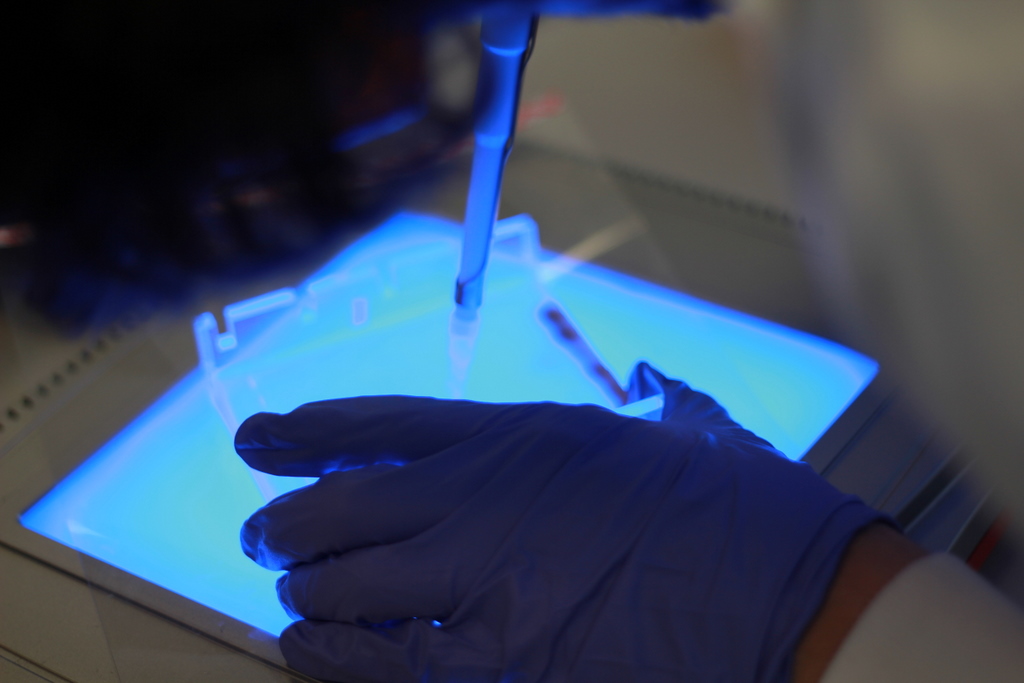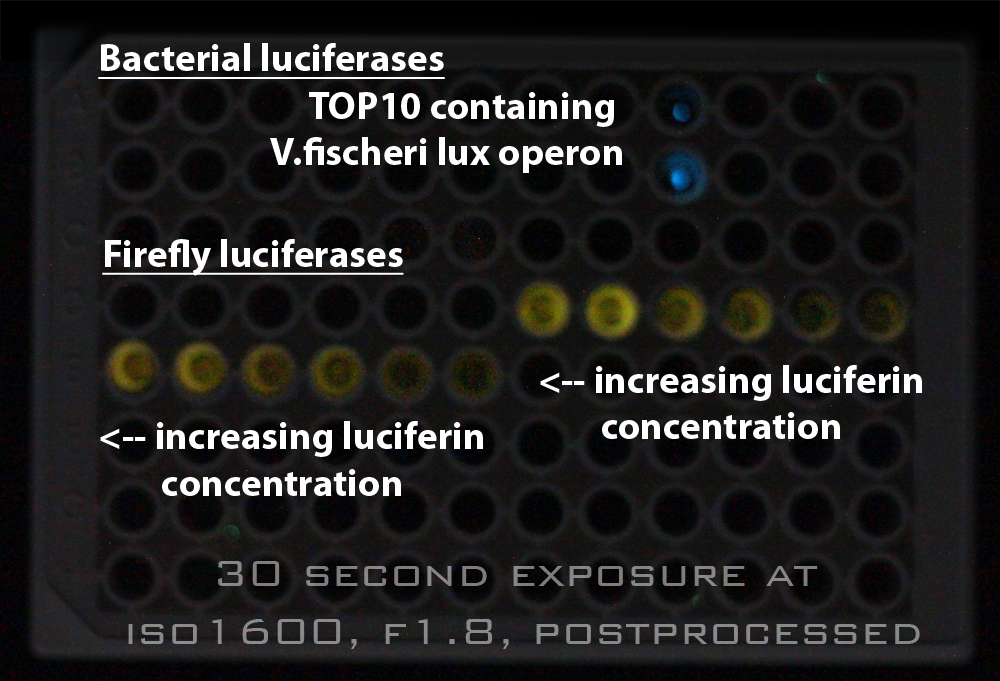Team:Cambridge/Notebook/8
From 2010.igem.org
(→Friday) |
|||
| Line 14: | Line 14: | ||
==Friday== | ==Friday== | ||
| + | We got results from sequencing of what we hoped to be our first Biobrick. It was not what we had hoped for, which was dissapointing. Additionally, Theo miniprepped a lux operon assembled using Gibson techniques and found it was the wrong size, after restriction enzyme cutting and running on a gel. | ||
| + | |||
| + | But on a positive note synthesis from DNA 2.0 arrived, and preliminary results using CHBT combined with D-cysteine showed significant light output implying that functional LRE should allow recycling of oxyluciferin. | ||
==Saturday== | ==Saturday== | ||
Revision as of 17:28, 4 September 2010
Contents |
Monday
Anja repeated lux operon extraction with pJS-555 instead of pSK-555 in the hope of getting better results.
Tuesday
Sadly no light from the cells transformed with the extracted lux operon.
Wednesday
Theo attempted to test induction of pBAD in the BMG Labtech plate reader
Thursday
We came in in the morning and viewed the results from the plate reader experiment that had been running overnight. The bacterial lux results were disappointing. Our positive control was emitting (blue) light. (See photo on the right), but the other cells which had been incubated with arabinose in the hope of inducing them had not emitted light.
But the most interesting results came from the cells expressing firefly luciferase ([http://partsregistry.org/Part:BBa_I712019 BBa_I712019]) under a consitutive promoter / RBS ([http://partsregistry.org/wiki/index.php?title=Part:BBa_J13002 BBa_J13002]. These showed low light output for 13 hours and then a rapid increase in luminescence, to a level which was sustained until the evening. We left the cells in the reader overnight to continue reading.
Friday
We got results from sequencing of what we hoped to be our first Biobrick. It was not what we had hoped for, which was dissapointing. Additionally, Theo miniprepped a lux operon assembled using Gibson techniques and found it was the wrong size, after restriction enzyme cutting and running on a gel.
But on a positive note synthesis from DNA 2.0 arrived, and preliminary results using CHBT combined with D-cysteine showed significant light output implying that functional LRE should allow recycling of oxyluciferin.
Saturday
Sunday
 "
"

